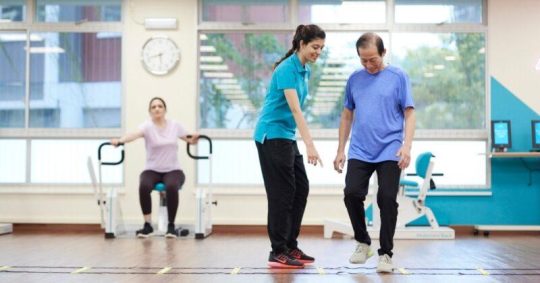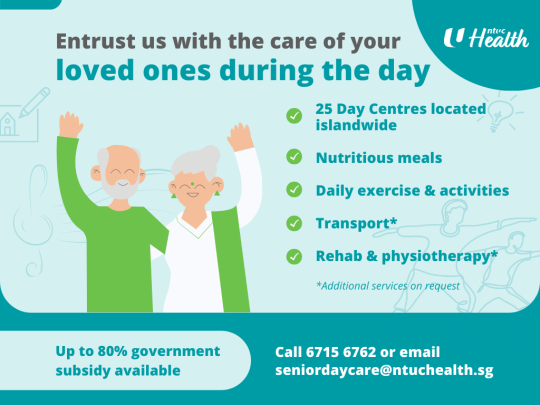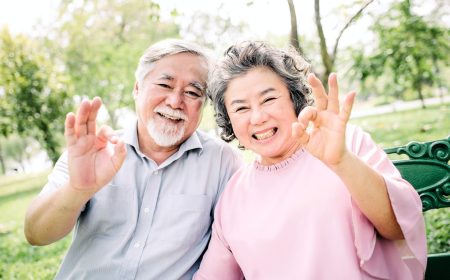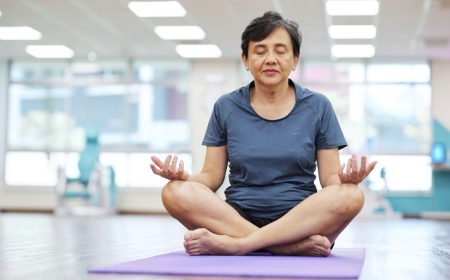
Caring for a loved one with Parkinson’s is a journey
Many of us who have loved ones living with Parkinson’s will likely have to be prepared for the deteriorative effects of this condition in the long run. If you are caring for a loved one with Parkinson’s at home, or looking for professional help, check out our article Understanding Parkinson’s, or read on for tips and resources to help you.
Create a daily routine for a loved one with Parkinson’s
Parkinson’s patients tend to experience “on and off” days, where symptoms are more prominent on some days than others. Ensure that your loved one has a structured daily routine in place, where you or another caregiver is available to help them complete daily tasks like bathing, feeding, writing or moving about the house safely.
To do this, pick a time to talk with them about what they would like to accomplish each day and work out a schedule with reminders. Some important things to include in a daily routine are the timings for:
- Waking up and sleeping
- Frequent small meals
- Medication reminders
- Light exercise
- Baths and personal hygiene
- Regular therapy sessions
- Social and mentally-stimulating activities
Make sure that your loved one is involved in planning their daily schedule, and be prepared to make changes along the way. Adding a little extra love and care to your daily routines can go a long way in making sure that your loved ones are healthy, comfortable, happy and well-cared for.
Modify the daily routine where necessary
Once a daily routine is instilled, be prepared to adapt to changes along the way, as your loved one’s condition evolves over time. Here are some things to look out for when helping your loved one with activities of daily living:
- Take time when helping your loved one out of bed as sudden changes in blood pressure may make them prone to light-headedness
- Prop up your loved one’s sleeping position by at least 30 degrees using pillows or an adjustable bed
- Make grooming and personal hygiene easy by providing an electric toothbrush, or electric shaver, especially if your loved one’s hands are stiff
- Prepare anti-slip bath mats and avoid bath tubs
- Use a shower stool or install a grab bar to prevent falls
- Provide a bathrobe to make drying off after showers easier
- Replace buttons on clothes with velcro or elastic waistbands to make it easier for your loved one to dress themselves, and lay out clothes ahead of time

Pill boxes are an effective way to manage daily medication doses
Manage medication for Parkinson’s
Have an open conversation with your loved one about their medications. Make it easy to find each dosage by colour-coding or labelling each medicine clearly. This way, when your loved one needs their dose, they know where to look first – without having to ask you every time. You can also use pill boxes to prepare daily doses if there are multiple medications.
Be prepared to speak to the doctor to identify the risks and side effects like low blood pressure, fainting spells, swelling in the limbs, sleep attacks or insomnia. Simple exercises such as pumping the fists or rotating ankles up and down may help with regulating blood pressure. And lastly, keep a symptom diary to note observations and side effects before the next doctor visit.
Lifestyle changes
Benefits of exercise and physical activity
Exercise is just like another form of medicine; it can help bring targeted benefits against Parkinson’s symptoms like tremor, rigid muscles, slow movement and constipation. It can also improve balance, flexibility, mood and thinking processes.
Physical activity can also be in the form of daily routine chores and recreation. Easy home-based activities to keep your loved one active in the early stages of Parkinson’s include:
- Light chores around the house like gardening and laundry
- Yoga or tai-chi
- Cycling
- Games that require movement, like tennis on a Nintendo Wii
Even in the early to mid stages of Parkinson’s, it is also important to keep an eye out for giddiness and falls, as patients who are unsupervised are at risk of losing their balance.
Ms Sylvia Liew, Principal Physiotherapist at NTUC Health recommends the following for Parkinson’s patients at different stages:
In the early stages of Parkinson’s, we encourage patients to go out into the community and exercise at gyms and fitness corners to continue staying socially active and avoid isolation.
For those in the moderate stages of Parkinson’s, they should continue seeing their therapists to work out the best management plan for their freezing, motor fluctuations and other issues. This can be done in Day Rehab Centres near home.
In the advanced stages of Parkinson’s, when leaving the house is difficult, one can be referred through the Agency for Integrated Care (AIC) for home therapy services to continue home rehabilitation exercises till a trained caregiver arrives.
Adjustments to diet
If your loved one is able to prepare their own meals, encourage them to follow a healthy diet that includes lots of fresh fruits and vegetables to provide fiber in the diet.
People with Parkinson’s in the later stages may develop difficulties with feeding themselves or swallowing food. In such cases, start transitioning to soft foods like yoghurt, porridge and mashed potatoes, or consider eating more frequent meals in smaller portions.

Keep a diary to track symptoms and appointments with doctors and physiotherapists
Checklist for caregivers
As a caregiver to a loved one with Parkinson’s, you may need to help them with daily tasks, while also allowing for as much independence as possible. To make things easier for both of you in the long run, here is a checklist to refer to.
- Keep a diary of symptoms that your loved one is facing so that you and the healthcare team can keep track of your loved one’s progress easily.
- Keep your loved one’s medical records into a folder so that you have their appointments and forms in one place.
- Set a daily alert on your smartphone for medication reminders.
- Store items that your loved one requires, such as clothes or utensils in easy-to-reach areas of the house.
- Switch out shallow plates for bowls with higher lips to help your loved one scoop food more easily.
- Watch out for signs of depression or dementia and seek assistance from professionals.
- Reach out to other caregivers and family members for support, especially for days where you need to take a break.
- Enlist the help of professionals to advise on necessary modifications to the home, such as installing grab rails or ramps around the house and replacing rugs with non-slip mats.
- Seek professional help early, before caregiving for your loved one becomes unmanageable.
Daily tasks of caregiving can be a big responsibility, but they can also bring you and your loved one closer together. By keeping a positive mindset, you can focus on what your loved one is able to do and encourage them to stay active.
Get professional help with elderly care services
Part of the caregiving journey is recognising when your loved one requires professional help to manage the symptoms and lifestyle changes that come with Parkinson’s. At NTUC Health, we help clients with Parkinson’s and their caregivers enjoy better quality of life through a wide range of elderly caregiving services.
Home Care
With our Home Care services, your loved one can benefit from personal care, therapy, nursing and medical services in the comfort of home. We can also help your loved one with personal hygiene, medical escort, diaper changes and other daily care needs.
Did you know that our Home Care nurses are accredited by the Agency of Integrated Care (AIC) to conduct Disability Assessments? Find out more about how we can help you apply for financial grants like CareShield Life and the Home Caregiving Grant with a Disability Assessment.

Rehabilitation and physiotherapy at our Day Rehab Centres can help with managing early motor symptoms of Parkinson’s.
Day Centre for Seniors
At our Day Centres for Seniors, seniors with Parkinson’s can receive help with therapy aimed at managing symptoms such as stiffness, impaired balance, slowed movement and other neurological symptoms. They can also benefit from planned group activities in a conducive and safe environment, so that you, the caregiver, can have peace of mind throughout the day.
Residential Care
At our nursing homes, our dedicated care teams provide round-the-clock nursing care to seniors in the long term. Our staff can help with managing and reducing complications from late-stage Parkinson’s Disease and long term bed rest. Our facilities allow your loved ones to move about using assistive devices safely and receive therapy to improve mobility, strength and ability to swallow.
Client Profile: Senior Day Care Client with Parkinson’s
Ms Yap*, aged 62, is single and lives alone. She is independent and manages her daily activities in the community well. Since her diagnosis with Parkinson’s in 2017, she has attended NTUC Health’s Senior Day Care service to stay active and engaged during the day. She was referred to our Day Rehab service in November 2020 to work on improving her range of mobility and goes for walks and cycles on non-therapy days.
Through our physiotherapists, Ms Yap learnt daily exercises she can do at home to relieve muscle stiffness and improve her posture and walking speed. She was able to walk faster and cope with Parkinson’s symptoms better after 3 months of rehabilitation.
Ms Yap continues rehab with NTUC Health as she now also wants to be able to carry her bags of groceries to the nearby supermarket without losing her confidence and balance.
*Example of how we support clients with Parkinson’s.


Get in touch
Do you have a loved one living with Parkinson’s? Whether you are looking for a professional caregiver to support you and your loved one at home, or at a facility, we can help. Visit our elderly care page.


